Fable
Peter Molyneux's epic is finally done. We find out if his team has been able to deliver on all those promises.
| Version Xbox | Developer Lionhead / Big Blue Box | Publisher Microsoft | Genre Action RPG |
||||
In an ideal world, videogames are appreciated in a vacuum. There's no pre-release hype and a game's heritage doesn't come into play. In the real world, though, Fable is a product by Peter Molyneux, and it is one of the most anticipated games of this generation - something the ebullient creator is at least partly responsible for. Calling your game-in-production the best RPG ever is bound to get some attention and also allow time for the told-you-soers to sharpen their blades.
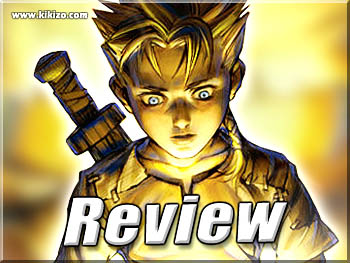
Simon and Dene Carter, lead designers of Fable together with Molyneux, had a vision to give gamers a new experience. Their aim was to create a world that would feel alive and would be the setting for the transformation of a young boy into that most archetypal of characters, the hero. The end result is a flawed victim of its own over-reaching that still manages to thoroughly entertain all the way through.
Placing you in the comfortable shoes of a blank slate is no easy task. The creators have to make you feel like you own the character and that you can do with it as you please. PC gamers have had this freedom for years, but it's only recently that console gamers have received the same courtesy.
The approach does carry its own set of inherent difficulties though. Take character interaction as an example. Because it's an enormous, if not impossible, task to foresee every likely player action, character interaction in Fable takes place in uncomfortable monologues. This unnatural sensation is compounded by the fully voiced NPCs. It also leads to everyone simply calling you Hero, which in itself seems strange, since you're never given a chance to name your character. You can choose a title, though, which can lead to amusing situations like entering a town after bravely thwarting a rock monster only to be loving called Arseface.
Character customisation is a large part of experiences like this. Fable ticks the mandatory checkboxes, allowing you to freely upgrade all aspects of your character's physical make-up. While the visual adjustments are limited - you can alter your weight by eating badly, though - gameplay accurately reflects your newfound talents. The variety of hairstyles, outfits and tattoos on offer does allow for plenty of dress-up play.
One of the more interesting aspects of the game is the good-evil alignment. Your character can be orientated towards good or evil, and in this there are very real consequences. Enter a town where you've previously gone on a killing spree and residents will cower, literally dropping anything they're doing to make sure they get the hell out of your path. If you're a regular goody-two-shoes though, all the ladies (and some men) will be swooning in your presence. Your reputation does not spread from town to town, so you can be a ruthless killer out for the blood of the innocents in one and a harmless trader in the village next door.
While you don't need to delve into the numerical innards of the game to enjoy it, it's good to know that they're there. The game keeps track of all the usual categories and some unusual ones too - though the latter do feel tacked on. The most novel statistic relates to your relationship status. Not only can you land a wife, you can land a husband (even though the game still refers to him as your wife), or you can even have multiple of each. There's a relatively mature take on sex - of both orientations - as well. Rampant philandering is but a few tempting gifts and expressions away.
The expression system allows you to let people know exactly how you feel, whether by means of a heroic pose or a sinister, roaring laugh. And the expressions aren't merely superfluous. The people of Albion react differently to you dependant on how you are perceived and how you treat them. The game keeps track of your renown to ascertain how famous or infamous you are in the world of Albion. Whether you're good or evil, the further you progress the more visible the reaction.
As a fantasy action RPG, the use of magic in Fable is practically mandatory. The range of spells suffices, though several of the non-attacking variety seem largely useless. The greatest problem with the magic system is that performing a spell is overly fiddly. Spells, which are accessed by pulling a trigger that opens the magic menu, are mapped to the lower three face buttons, and scrolled through using the remaining button. With 16 spells in total mapped to three buttons, getting to the one you want can be a chore. This is exacerbated by the lack of time slowdown or stoppage as you scan through your virtual grimoire.
Swordplay is, however, nearly perfect. Pulling a trigger allows you to lock onto an enemy, and repeatedly pressing the attack button unleashes a neat three-hit combo. You can predictably block, roll and strafe, all of which are capable. Even better, after a few successive hits to the enemy, you have access to a flourish, an attack guaranteed to land, which is often a life-saver. The range of weapons is limited to axes, katanas, maces and broadswords, which are each available in different metals of corresponding higher attack power. Ranged weapons take the form of either longbows or crossbows. Swords are more fun to play with though.
The extensive attack and defence possibilities are let down by the enemies. The breadth of opponents is average and they all suffer from timid AI and reluctance to push your skills. When facing more than three opponents - a common occurrence - the majority will hang back and politely await their beating. Boss battles are rather infrequent, and sadly they are wholly reliant on obvious attack patterns, and hence any challenge posed is the result of a conscious decision on your part to not exploit the AI deficiencies.
One aspect the team has nailed is the creation of a living, breathing world. Albion teems with life, whether you're observing it or not. NPCs go about their business, performing chores, shopping, drinking, gambling - it really does feel like you're only a small part in a much larger world. This can be used to your advantage, as there are countless distractions to keep you from the main path through the story. The economic system lends itself to realistic experimentation, and if you're so inclined, you could spend weeks just going from town to town, amassing as much wealth as possible through trading and property acquisition.
The story itself is fairly straightforward and, sadly, over much too quickly. During development, figures as high as 100 hours of gameplay were bandied about. Technically, this is correct. Since the world is persistent, you could theoretically spend the next year of your life playing Fable exclusively. The main story however is not nearly as long-lived.
The plot is progressed by quests. These can be obtained at any time, and they range in scope from menial protection missions to boss battles crucial to advancement of the story. There are essential quests that are the only segments required to complete the game, and if you were to ignore everything else, you could make it through in about a dozen hours. It must be said, however, that doing this ignores a large part of the fun the game offers. In this way, Fable is very similar to recent Grand Theft Auto games. Doing the bare minimum is fine, but you're not going to get the full experience.
Fable is one of those rare games where your experience is dependant on how much you put into it. The story is good, but the distractions and battle system are better, and the freedom of being able to live your life in this world is intoxicating. No, it does not live up to all expectations, but then that was inevitable. Perhaps it's time for people to divorce themselves from reality for a while, and Fable's Albion seems the perfect place to do that.
| ||||||||||||
|
| Video Coverage (Latest Videos & Video FAQ) | |||
| PLEASE DO NOT DIRECT LINK TO ANY MEDIA FILE ON KIKIZO | |||
| Description | Dur. | Size | Details |
|
Fable: Video Interviews & Behind-Scenes Feature Exclusive video interviews with Peter Molyneux, the Carter brothers and many others behind the epic Xbox adverture, Fable. (480x360, 400kbps) |
41.12m | 118 MB | WMV |
|
Peter Molyneux: Kikizo Video Interview Exclusive video interviews with Peter Molyneux on everything Lionhead and many wider gaming topics (480x360, 400kbps) |
33.31m | 91.7 MB | WMV |
|
Fable Ten minute walkthrough with Simon Carter (640x480, 700kbps) |
9.54m | 47.7 MB | WMV |
|
Fable Direct feed version of the E3 2004 trailer (640x480, 1200kbps) |
1.34m | 15.2 MB | WMV |
|
Fable Gameplay footage 1 (640x480, 1200kbps) |
1.04m | 9.34 MB | WMV |
|
Fable Gameplay footage 2 (640x480, 1200kbps) |
1.29m | 12.5 MB | WMV |
|
Fable Direct feed trailer - good/evil (640x480, 1.2Mbps) |
1.49m | 16.6MB | WMV |
|
Fable Direct feed gameplay (640x480, 1Mbps) |
0.22m | 2.81 MB | WMV |
|
Fable E3 2004 showfloor gameplay footage (640x480, 1Mbps) |
2.16m | 17.20 MB | WMV |
|
Fable Hi-res camera video footage from X03. (480x360, 832kbps) |
1.57min | 11.3MB | WMV |



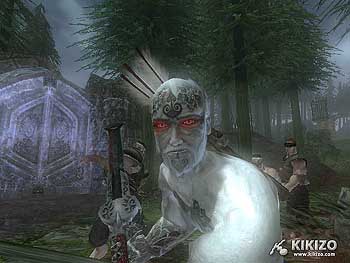
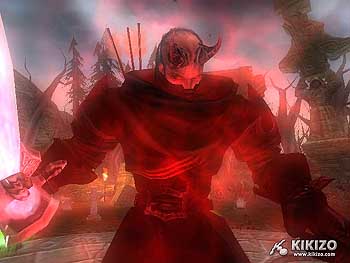









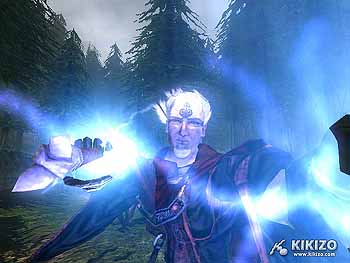


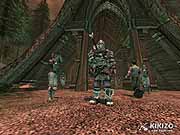

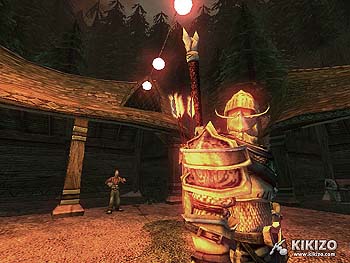


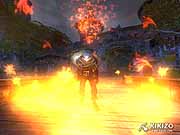
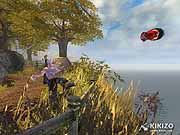

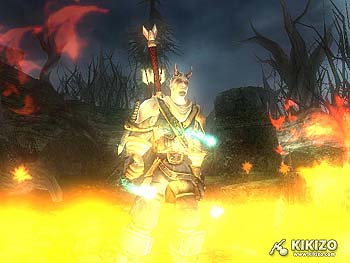




 Satoru Iwata Video Interview - the late Nintendo president spoke with Kikizo in 2004 as 'Nintendo Revolution' loomed.
Satoru Iwata Video Interview - the late Nintendo president spoke with Kikizo in 2004 as 'Nintendo Revolution' loomed. Kaz Hirai Video Interview - the first of Kikizo's interviews with the man who went on to become global head of Sony.
Kaz Hirai Video Interview - the first of Kikizo's interviews with the man who went on to become global head of Sony. Ed Fries Video Interview - one of Xbox's founders discusses an epic journey from Excel to Xbox.
Ed Fries Video Interview - one of Xbox's founders discusses an epic journey from Excel to Xbox. Yu Suzuki, the Kikizo Interview - we spend time with one of gaming's most revered creators.
Yu Suzuki, the Kikizo Interview - we spend time with one of gaming's most revered creators. Tetris - The Making of an Icon: Alexey Pajitnov and Henk Rogers reveal the fascinating story behind Tetris
Tetris - The Making of an Icon: Alexey Pajitnov and Henk Rogers reveal the fascinating story behind Tetris Rare founders, Chris and Tim Stamper - their only interview? Genuinely 'rare' sit down with founders of the legendary studio.
Rare founders, Chris and Tim Stamper - their only interview? Genuinely 'rare' sit down with founders of the legendary studio. The History of First-Person Shooters - a retrospective, from Maze War to Modern Warfare
The History of First-Person Shooters - a retrospective, from Maze War to Modern Warfare